9 Best (Healthy) Dog Foods without Peas, Lentils, Legumes and Potatoes 2023
Quick Guide
- What Are The Best Pea Free Dog Foods?
- Darwin’s Natural Selections Chicken for Dog
- Victor Hi-Pro Plus Formula Dry Dog Food
- The Farmer’s Dog Chicken Recipe
- Purina Pro Plan Sport All Life Stages Performance 30/20 Formula Dry
- American Natural Premium Original Recipe Dry
- Merrick Grain-Free Real Chicken Canned
- Purina Pro Plan Focus Adult Sensitive Skin & Stomach Formula Dry
- FAQ : What Are The Best Dog Foods Without Peas?
- Dogs and taurine
- Recommendations from researchers
- Making a change in your dog’s diet
- Frequently Asked Questions
- Conclusion
In this article we’ll discuss why you might want to feed a dog food that doesn’t contain peas, lentils, legumes, or potatoes. We’ll also discuss:
- The 9 Best Dog Foods that Don’t Contain Peas, Lentils, Legumes, and Potatoes;
- What kinds of dog foods you can feed your dog that don’t contain these ingredients;
- What researchers are recommending about taurine and dog foods;
- Our Best Value Pick!
With the news that the FDA is conducting an investigation into grain free dog foods that contain large amounts of peas, lentils, legumes, and potatoes and their possible link to dilated cardiomyopathy (DCM), many people that have been feeding grain free dog foods with these ingredients are starting to look for other options.
We are concerned about reports of canine heart disease, known as dilated cardiomyopathy (DCM), in dogs that ate certain pet foods containing peas, lentils, other legumes or potatoes as their main ingredients. – fda.gov
Dilated Cardiomyopathy has previously been associated with a few breeds as a genetic condition. However, in the last several years veterinarians, researchers, and owners have reported an increase in the condition, especially involving breeds with no past occurrence of DCM.
The FDA followed their initial warning up with a Q&A piece. Other researchers, especially at UC Davis, are also working on the case.
We can help you choose the best dog foods that don’t contain peas, lentils, legumes, or potatoes, if you have been feeding a grain free food or any dog food that contains lots of these ingredients.
What Are The Best Pea Free Dog Foods?
Darwin’s Natural Selections Chicken for Dog
Editor’s Choice
Darwin’s Natural Selections line of raw dog foods are minimally processed and contain whole vegetables with no added fillers, grains, hormones, or chemical additives. Aside from the chicken recipe you can choose from duck, turkey, beef, and lamb – all similarly great products WITHOUT LEGUMES, LENTILS, and PEAS.
50% Off Code : EASYPET
Darwin’s Natural Selections Chicken for Dogs
| Our Rating | 6 Stars |
| First 5 Ingredients | Chicken, Chicken Necks (bone in), Chicken Gizzards, Chicken Liver, Chicken Hearts |
| Guaranteed Analysis | As Fed: Protein (min 13%), Fat (min 7%), Fiber (max 1%), Moisture (Max 74%) Dry Matter: Protein (min 50%), Fat (min 28%), Fiber (max 2%), Moisture (Max 10%) |
| Type | Raw |
| Key Features | Delivered fresh to your door, made with human-grade ingredients, No additives, Grain-Free, Made in the USA |
| Best For | Picky Eaters, Weight Control, Sensitive Stomach, Allergies |
50% Off Code : EASYPET
Darwin’s Natural Selections Chicken for Dogs
Darwin’s Natural Selections Chicken Recipe is a top-notch dog food that prioritizes quality ingredients and optimal nutrition.
This recipe features a protein-rich blend of chicken, chicken necks (with bones), gizzards, liver, and hearts, ensuring dogs receive essential amino acids for muscle development and overall health.
The inclusion of organic carrots, lettuce, squash, sweet potato, celery, and parsley adds a burst of natural vitamins, minerals, and fiber to support a strong immune system and digestive well-being.
Flaxseed oil and cod liver oil provide valuable omega-3 fatty acids for healthy skin and coat. To guarantee a complete and balanced diet, a proprietary vitamin and mineral supplement is included, offering a comprehensive range of essential nutrients.
50% Off Code : EASYPET
Victor Hi-Pro Plus Formula Dry Dog Food
Best Pea-Free Dry Dog Food
Victor Hi-Pro Plus Formula Dry Dog Food has beef meal as the first ingredient. This is a 30/20 protein and fat formula, great for active dogs. Per the company, 88 percent of the protein in the food comes from meat, poultry, and fish. No corn, wheat, soy, or glutens. No rice bran or wheat midds. Contains grain sorghum, whole grain millet, and feeding oatmeal.
$20 Off 1st Order of $49+ at Chewy
Victor Hi-Pro Plus Active Dog Formula
| Our Rating | 4 Stars |
| Average Price | $1.55/lb |
| First 5 Ingredients | Beef Meal, Grain Sorghum, Chicken Fat (preserved with mixed Tocopherols), Pork Meal, Chicken Meal |
| Guaranteed Analysis | Protein (min 30%), Fat (min 20%), Fiber (max 3.8%), Moisture (Max 9%) |
| Type | Dry |
| Key Features | No Corn, Wheat, or Soy, Gluten Free, No Legumes, No Peas, No Lentils |
| Best For | Hunting Dogs, Weight Gain, Without Corn, Soy, Wheat, High Protein |
$20 Off 1st Order of $49+ at Chewy
$20 Off 1st Order of $49+ at Chewy
The Farmer’s Dog Chicken Recipe
Best Fresh Pea Free Dog Food
This chicken recipe from Farmer’s Dog features an ingredient list that does not contain any peas, legumes, or lentils. If you’re looking for a fresh option (which we highly recommend) it’s very difficult to find a formula from any brand without some sort of pea or bean. This is one of your only options. Be warned that the other recipes from The Farmer’s Dog do contain green beans, lentils, or chickpeas.
50% Off Code : EASYPET
The Farmer’s Dog Chicken Recipe
| Our Rating | 6 Stars |
| Average Price | $7.65/day |
| First 5 Ingredients | USDA Chicken, USDA Chicken Liver, Broccoli, Cauliflower, Brussels Sprouts |
| Guaranteed Analysis | Protein (min 51%), Fat (min 30%), Fiber (max 3%) |
| Type | Fresh (Frozen) |
| Key Features | Super Premium, Whole Ingredients, Customized, Home Delivery |
| Best For | Yeast Free, Hypothyroidism, Anal Gland Problems, Grain Free |
50% Off Code : EASYPET
50% Off Code : EASYPET
Purina Pro Plan Sport All Life Stages Performance 30/20 Formula Dry
Purina Pro Plan Sport is an all-time favorite with many dog lovers, especially dog breeders, trainers, hunters, and people who show dogs. You may not like all of the ingredients in this food if you’re used to feeding boutique dog foods but Purina is one of the companies that does lots of nutritional research and they have very good quality control measures. The food has no wheat, soy, or added artificial colors, flavors, or preservatives. Many people have fed Pro Plan Sport, and other Pro Plan foods, for generations with excellent results and healthy, long-lived dogs. Highly recommended.
American Natural Premium Original Recipe Dry
Many people probably don’t know about American Natural Premium but it might be the best dry dog food without peas, lentils, legumes, or potatoes. There’s nothing fancy here, just good nutrition for your dog. The first ingredients are Chicken Meal, Oatmeal, Brown Rice, White Rice, and Chicken Fat. It has 25 percent protein and 16 percent fat. Cooked in small batches at low temperatures, with no wheat, corn, or soy. Available in 4, 12, 25, and 40-lb bags from Chewy.com.
Merrick Grain-Free Real Chicken Canned
Choosing the best canned dog food without peas and the other unwanted ingredients was tough. We looked at a lot of canned foods, including many that said they were grain free. Why? Because most canned dog foods today are grain free, whether they say so on the label or not. Most canned foods today do not contain corn, wheat, or other grains. They do, however, contain peas and potatoes. So, finding a canned food without these ingredients was difficult. We finally found Merrick Grain Free Real Chicken Canned Dog Food. This food contains Deboned Chicken, Dried Egg Product, Natural Flavor, Salmon Oil, the inevitable gums to hold everything together, and vitamins and minerals. But no peas, lentils, legumes, or potatoes. Some other Merrick canned foods came close but they had some peas or potatoes lower in their ingredient lists.
Purina Pro Plan Focus Adult Sensitive Skin & Stomach Formula Dry
Yes, Purine Pro Plan is here again. Their Focus Adult Sensitive Skin & Stomach Formula Dry Dog Food deserves it’s own spot. If your dog has sensitive skin or stomach issues, this is an excellent food. Salmon is the first ingredient, followed by barley. Prebiotic fiber and oatmeal make the food easier to digest. No corn, wheat, soy, artificial colors, or flavors. This food has been popular for a long time with owners who have dogs with skin problems and sensitive stomachs. Comes in 5, 16, and 30-lb bags.
FAQ : What Are The Best Dog Foods Without Peas?
| Type | Dog Food | Price | Rating |
| Fresh | Varies |
A+
| |
| Best Value | $1.20/lb |
A+
| |
| Most Popular | $1.21/lb |
A+
| |
| Best Dry | $1.37/lb |
A+
| |
| Best Canned | $2.48/can |
A+
|
Dogs and taurine
Taurine is an essential amino acid for cats meaning that they require it but they can’t produce it themselves. They have to obtain it from the meat they eat. Dogs and humans, however, can make taurine in their bodies. Veterinarians and canine nutritionists have never been particularly concerned about taurine deficiency in dogs since dogs are able to produce their own taurine as long as they have a good diet.
Taurine is necessary for normal vision, good digestion, normal heart muscle function, and to maintain a healthy pregnancy and fetal development. It also help support a healthy immune system.
In the 1980s, researchers discovered that tens of thousands of cats were going blind and/or dying from heart disease due to a lack of taurine in their diet. Since then, pet food makers have added taurine to cat foods to make sure cats have what they need.
In the case of dilated cardiomyopathy and dogs with low taurine levels, research is still at an early stage but there are some theories that grain free dog foods that use lots of peas, lentils, legumes, or potatoes might have lower meat protein. While these foods often appear to have high protein percentages according to the guaranteed analyses, much of the protein often comes from plant protein which is not a source of taurine. Taurine can only come from animal sources.
Another theory is that the fiber and plant material from the peas, lentils, legumes, or potatoes may be impeding dogs from absorbing enough taurine which is leading to the heart problems.
Recommendations from researchers
We won’t really know if there is a link between grain free dog foods and DCM, or what the link might be, until researchers make more announcements. However, they have been advising dog owners to move away from feeding dog foods that contain high amounts of the suspect ingredients. They recommend feeding dog foods that have more nutritional research to back up their formulas and rigorous quality control. Here are some other things to look for when choosing a food for your dog:
- Search out companies that employ a full-time, qualified nutritionist. Appropriate qualifications are either a PhD in animal nutrition or board-certification by the American College of Veterinary Nutrition (ACVN) or the European College of Veterinary Comparative Nutrition (ECVCN).
- Can the company provide a complete nutrient analysis of their dog food? Not just the guaranteed analysis which only has minimums and maximums but exact numbers. You should be able to ask for any nutrient e.g., protein, phosphorus, sodium, etc., and get an exact number. This should ideally be given on an energy basis (i.e. grams per 100 kilocalories or grams per 1,000 kilocalories), rather than on an ‘as fed’ or ‘dry matter’ basis which doesn’t account for the variable energy density of different foods.
- What kind of product research has been conducted? Are the results published in peer-reviewed journals?
You can find more detailed information about what researchers recommend in dog foods here.
You can watch a short interview with one researcher here:
Making a change in your dog’s diet
If you are concerned about taurine levels or diet-related cardiomyopathy and you’re thinking of changing your dog’s diet, you will probably need to adjust some of your ideas about dog food. Researchers have been outspoken in their belief that there is little science to back up the trend toward feeding grain free diets, especially those with exotic ingredients. According to these researchers:
- Grain free dog foods are not healthier for your dog;
- Dog food allergies are not common;
- Grain free dog foods have become popular due to marketing and not because they are nutritionally sound;
- It’s harder for companies to work with exotic ingredients which can lead to nutritional deficiencies;
- There is nothing inherently unhealthy for your dog about eating dog foods that contain grains.
Have grains been overused by some dog food manufacturers in the past? Yes, absolutely. Do some dogs have allergies or food sensitivities involving grains? Again, yes. Grain free dog foods were originally developed for dogs that had allergies. However, most people that feed grain free dog foods today do not have dogs that have food allergies. Grain free dog foods have simply become popular or fashionable. Many people probably do believe that they are healthier than dog foods that contain grains. The fact is that most dogs can eat a good dog food that contains grains without any problem, especially if the food is made by a company that uses good quality control and professional canine nutritionists.
We looked at all 40 pages of dry dog foods on the Chewy.com web site, examining dozens of foods in detail. We also looked at quite a few canned foods. Here are our picks for the 9 best dog foods that don’t contain peas, lentils, legumes, and potatoes. (And it wasn’t easy!)
Farmina Natural & Delicious Wild Cod & Ancestral Low-Grain Formula Dry
We really like Farmina. This is the Natural & Delicious Wild Cod & Ancestral Low-Grain Formula but they have some other low-grain formulas. This food is made in Italy. According to the company, 92 percent of the protein comes from animal sources. Their fish formulas do have a strong odor but dogs love them. GMO-free and low-glycemic. Their low-grain formulas contain 20 percent grain, 60 percent animal ingredients, and 20 percent vegetables. The first ingredients are Cod, Dehydrated Cod, and Herring & Salmon Oil Blend. Farmina does use spelt in its foods, which is a sub-species of wheat. If your dog has a food allergy or sensitivity to wheat, we don’t know if this would be a problem. Farmina has some foods for dogs with allergies and food sensitivities that use quinoa instead.
Royal Canin Golden Retriever Adult Dry Dog Food
Golden Retrievers are one of the breeds that have been particularly plagued by DCM in recent years and there is some evidence that it could be linked to diet. I’ve always been skeptical of these breed-specific formulas but evidence is showing that, at least where taurine and DCM are concerned, Royal Canin Golden Retriever Adult Dry Dog Food is helping Golden Retrievers. Don’t even look at the ingredients. You won’t like them. But Royal Canin is one of the companies that does enormous amounts of nutritional research and food testing and this food has been proven to help Golden Retrievers. Available in 17 and 30-lb bags from Chewy.com.
Holistic Select Adult Health Chicken Meal & Brown Rice Recipe Dry Dog Food
Holistic Select Adult Health Chicken Meal & Brown Rice Recipe is another food that probably seems rather basic compared to many exotic dog foods. The first ingredients are Chicken Meal, Brown Rice, Rice, Oatmeal, and Chicken Fat. It has 25 percent protein and 15 percent fat (guaranteed analysis). Active probiotics and digestive enzymes help with good digestion. Nothing too fancy here but it contains no peas, lentils, legumes, or potatoes. Available in 4, 15, and 30-lb bags from Chewy.com.
Eukanuba Premium Sport 28/18 Condition Adult Dry
Eukanuba Premium Sport 28/18 Condition Adult Dry Dog Food is another great food if you have a very active dog. Eukanuba, the sister company of Royal Canin, can back up their formulas with solid research. Again, you may not like the ingredients here (though the first ingredient is chicken), but the higher quality foods from these big companies have plenty of nutritional research to support their formulas. Good nutrition is more important than hype. Chewy.com has this food in 14 and 30-lb bags.
Sport Dog Food K-9 Series Police K-9 Chicken & Fish Formula Pea-Free Dry
Sport Dog Food is becoming known as a company that makes dog foods that don’t contain peas or flax. They have a number of foods that might appeal to people looking to avoid peas, lentils, legumes, and potatoes, especially if you have active dogs. We like Sport Dog K-9 Series Police K-9 Chicken & Fish Formula Pea-Free Dry Dog Food. This food has 26 percent protein and 19 percent fat (guaranteed analysis). The first ingredients are Chicken Meal, Whole Ground Sorghum, Whole Grain Millet, and Chicken Fat. No artificial preservatives, flavors, fillers or by-products; and no corn, soy, wheat, eggs or egg product, if your dogs are sensitive to eggs. This food is high in calories, so watch how much you feed.
Here are some other brands you can check. They also had some good dog foods without peas, lentils, legumes, or potatoes.
- Annamaet
- Kinetic
- Dr. Gary’s Best Breed
- Health Extension
- Chicken Soup for the Soul
In most cases, the brands we have discussed also have formulas for puppies, large breeds, etc. You will need to check ingredients to see if those formulas contain peas, potatoes, legumes, and lentils.
Don’t be concerned that some of these foods seem to have lower protein percentages in the 25 percent range according to their guaranteed analyses. The percentage will be a little higher by dry matter. Adult dogs that aren’t doing heavy work need about 18 percent (minimum) protein in their diet so all of these foods are well above that percentage. We’re also used to seeing some enormous – and inflated – protein percentages in grain free dog foods thanks to the addition of peas, legumes, and lentils, among other ingredients. Without some of these plant protein boosters, protein percentages will fall back to more ordinary levels in dog foods. The addition of these plant proteins to dog foods are what we’re trying to avoid.
Frequently Asked Questions
Can Dogs Digest Pea Protein?
Pea protein is a concentrated derivative of a whole pea. To put it simply, manufacturers include pea protein as a way to boost the protein in a dog food in the cheapest way possible. Pea protein is high in insoluble fiber, so basically, even though it is protein, it is not the kind of protein that your dog really needs. Dogs can digest pea protein, but over time, large amounts of it can cause severe damage.
Should Dogs Eat Peas?
Dogs can definitely eat peas in moderation. Peas are okay for pets if they are low on the ingredient list and only part of a pet’s balanced diet and not used as a main ingredient or a filler or replacement for other, healthy proteins.
Why Are Peas Not Good For Dogs?
Peas aren’t necessarily bad for dogs when given in moderation and not as a main source of protein or food. Peas contain purines, a naturally occurring chemical compound, also found in some food and drinks. Purines produce uric acid that’s filtered through the kidneys. Too much uric acid can lead to kidney stones and other kidney conditions. Therefore, you definitely don’t want to feed peas to a dog with a kidney problem, but you also want to make sure that your healthy dog isn’t ingesting too many peas. Dogs don’t need fruits and vegetables the way humans do. They’re carnivorous in the wild, eating vegetation when meat sources are scarce. But as an occasional snack or treat for your dog, peas are an okay low-calorie option.
Is There a Difference Between Peas and Chickpeas?
Peas and chickpeas are both legumes but are from different species and are different in size and color. Peas are often eaten fresh and are known as a green vegetable. Chick peas are also known as garbanzo beans and are eaten dried. When fresh and bland, chickpeas are safe for dogs in moderation, just like fresh green peas.
What’s a Legume Anyway?
A legume is a plant in the family Fabaceae, or the fruit or seed of such a plant. Legumes are grown to be eaten by humans or livestock. The legume family includes peas and chickpeas, black beans, and green beans.
Is Grain Free Dog Food Better for Your Dog?
With the rise of the paleo and fresh food diet for humans, many people are starting to investigate more thoroughly the ingredients in their pets’ food, as well. Grain free dog food can be healthier for your pet, as long as the ingredients included in the food are also healthier. Sometimes manufacturers will “fill” the food with other ingredients that are not necessarily healthy for dogs, thus taking away from the grain-free aspect. Other times, though, grain-free food will be abundant with fresh ingredients, and thus a much healthier option. It all depends on what the ingredients are.
Why is Grain Bad For Your Dog?
Scientists have proven over the last several years that dogs have different genes that wild dogs or wolves that make them more adapted to life with humans, such as the ability to digest starch. Therefore, it is not entirely necessary that dogs avoid grain at all costs. If your dog is not allergic to the ingredients in a grain-friendly food and is not obese, then grain is not bad for your dog and can be a great source of vitamins and nutrients. The important thing for pet owners to do is to check the ingredients on the food and make sure that dogs are getting a good source of protein in each meal.
Conclusion
At the moment it can be difficult to find foods that are free of peas, potatoes, lentils, and legumes. Even dog foods that are grain-inclusive often contain peas in some form or potatoes/sweet potatoes. Depending on the results of the FDA’s investigation into grain free dog foods and what, if any, link there might be to taurine and dilated cardiomyopathy, we could see a lot of changes in dog food ingredients in the future.
If you have been feeding your dog a grain free diet and you are concerned about the risk of DCM, talk to your veterinarian. She can arrange testing. If your dog has taurine-related dilated cardiomyopathy that is caused by diet, changing his food has been shown to improve DCM in some cases.
See our article Grain Free or Not? to find out what you need to do if you think your dog might have DCM.

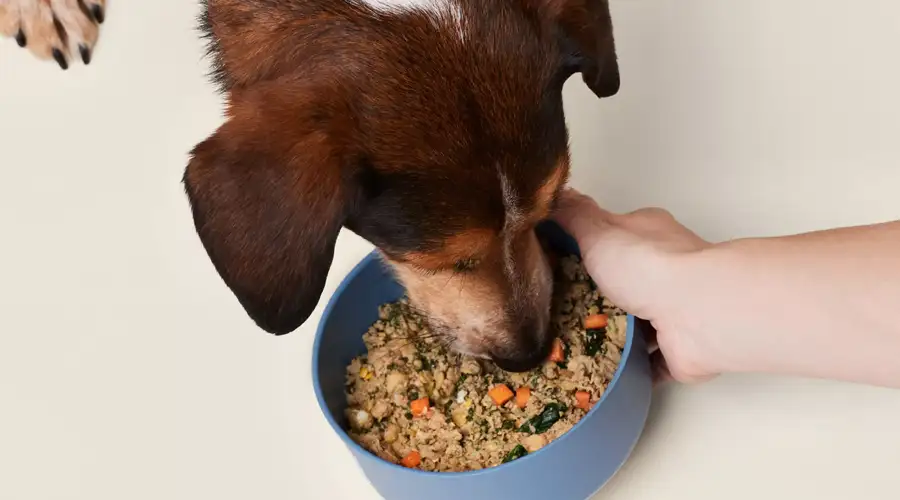






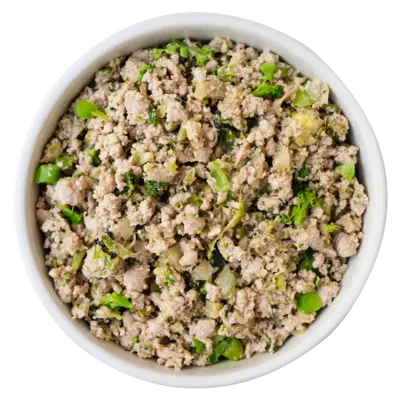
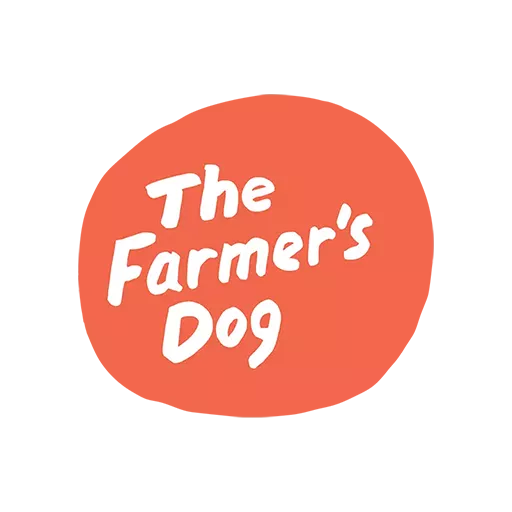

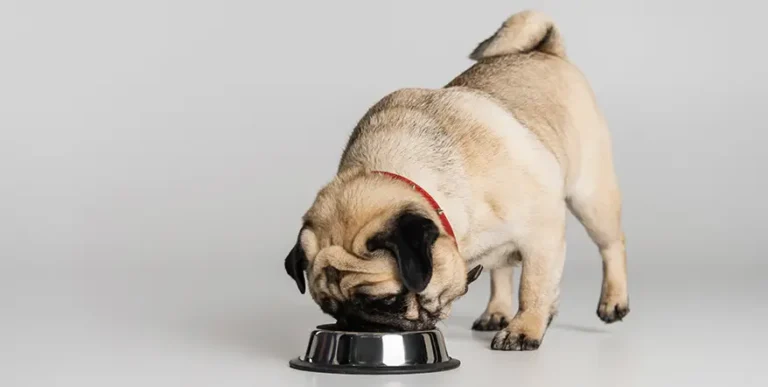



![Best Dog Food for Sensitive Stomach : Top Recipes for Digestive Discomfort Ranked [2023]](https://dogfoodfaq.com/wp-content/uploads/2022/05/sensitive-stomach-dog-food-faq-768x387.webp)
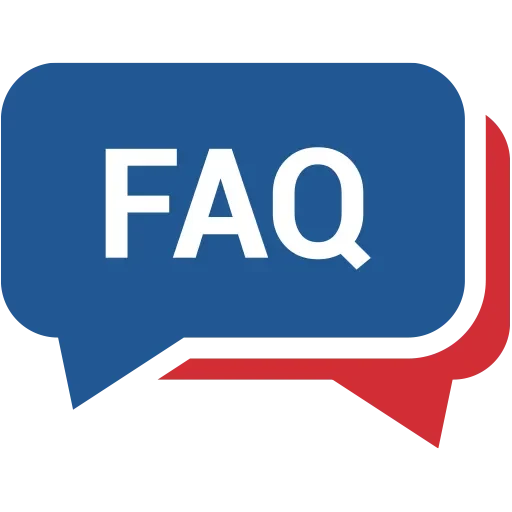






Most, if not all, of the foods on this list have some type of legume in them. I stopped checking after the 5th food in a row had Alfalfa meal listed. Alfalfa is a legume.
Hi John,
It’s hard to find dog foods today that are completely free of every ingredient that might be objectionable. The foods I recommended in this article are almost entirely foods that have been doing well with dogs that have been tested for dilated cardiomyopathy. I tried to find some foods that would appeal to people who like so-called “better” ingredients. There are also foods that would be recommended by veterinary cardiologists. Yes, alfalfa is a legume but it’s not one of the ingredients that the FDA has specifically mentioned in its warnings and it’s not used in large amounts in dog foods the way peas, chickpeas, and soybean products are. Dr. Josh Stern, who is leading the research on this subject at the University of California-Davis, has recommended focusing on the first five ingredients in the food to make sure they don’t include the suspect ingredients.
Thanks,
Carlotta
Take a look at First Mate. While they don’t have peas or legumes, they do have some potato. So hard to find anything without either of these two ingredients. I have been searching for pea and legume free for about two years now and it is really hard to find. The few brands that I have found seemed to be geared towards performance type nutrition. Good luck and thanks for bringing attention to this need in the marketplace.
Instanct turkey limited ingredients is by far the best food without potatoes, peas, corn, wheat and so on and number 1 ingredient is deboned turkey
Dear Carlotta,
I appreciate the time you have undertaken to list the food that don’t have peas,lentils, legumes, in them. I knew that plant foods such as peas are a protein, but usually they are considered an incomplete protein. I didn’t realize that dog food mfg. were considering them as the total protein count in their dog foods. I thought the peas were just replacing the grains.
Thank you for doing this research! It was overwhelming to try to figure this out by reading online labels. Now I just have to choose from your list. Much appreciated!
Thank you very much for providing some suggestions on dog food. It seems there is a lot written about don’ts, but then offers no suggestion. I have been struggling to find a decent dog food for a long time, and thought I had found it, avoiding corn and soy, especially as the first ingredient. Our dog did have skin issues, and craved starches, so thinking it might have something to do with nutrition, explored many foods. We ended up with grain free type, and just this Christmas morning lost her to DCM…she was a Doberman, so we thought it was genetic…but then I found out about grain free and DCM… Question now is, did genetics kill her, or did I, trying to “get it right”…Dog food quality and nutrition sure is a tragedy, and any help is much appreciated. Thank you for all you do. I will be looking for more of your work.
I’m so sorry for your loss. For you and everyone interested in this subject, there is a very good Facebook group so you can follow the latest research. It has some good discussions and data about foods, too. https://www.facebook.com/groups/TaurineDCM/?ref=bookmarks
I found your article after reading that one of my labs might be gassy due to the peas in his food.
I lost one of my labs to DCM in April of 2015. Most of his life I had fed him nutro natural choice large breed. My memory is failing me now but I don’t believe I switched my other lab to a grain free until after he passed. I wanted to give her “better” and since I was now only feeding one I could justify the cost. So interesting that this might not have been the better choice after all.
While I appreciate your concern about DCM, as my pup (2 1/2 years old) was diagnosed with this disease, most of these foods do not meet WASVA guidelines, do not have full time board certified nutritionists in house & do not do feeding trials (controlled).
I’m curious, I did not see that your creditials list you as a board certified veternarian nutritionists.
I trust my pup’s cardiologist who does not recommend most of these foods.
Do you collect a fee for foods that are purchased due to your recommendations?
Thanks for your comment. I’m sorry about your dog’s diagnosis. No, I do not collect a fee for any foods that are purchased on my recommendation. Nor do I get kickbacks, free dog food, or any other incentives for recommending any foods. I’ve been writing about dog food and reviewing them for over 20 years. I’ve written several books about dogs and about feeding your dog. I’ve also written for several dog food companies in the past as a freelancer. I have five dogs of my own and I became interested in DCM because a friend lost a dog to the dietary form of the illness a few months before the FDA began investigating. Purina Pro Plan, Royal Canin, Hill’s, and Eukanuba are most commonly recommended by veterinary nutritionists and veterinary cardiologists. I think you would agree that these companies do meet WSAVA guidelines. For this article I was asked to come up with nine dog foods without peas, lentils, legumes, and potatoes so I had to search to find a few other foods. This article was written several months ago and I would still stand by Farmina and Sport Dog Food. Farmina appears to meet testing requirements in Italy as well as AAFCO guidelines and works with the University of Naples. Dogs eating these foods that have been tested for DCM have had good results. As far as I know, there have not been any cases of DCM reported in dogs eating canned foods so the Merrick canned food would also still be a good choice. I’m sure you understand that we are still learning about the dietary form of DCM so recommendations may change over time. If you are not aware of it, there is a very good group on Facebook that provides excellent information about the dietary form of DCM: https://www.facebook.com/groups/TaurineDCM/
Carlotta Cooper
Carlotta, unfortunately I have a greyhound that cannot tolerate any “hot” foods such as beef or chicken, so eats only duck and rabbit. This is due to his Liver Qi Stagnation. Suggestions?
If you dont mind me asking ,what did your pups nutritionist recommend?
So what does your pups cardiologist recommend?
Thank you for your research and it is good to hear that you focused your story on some of the core ingredients that may be the highest sources of concern, which are legumes (especially lentils), garbanzo beans, pea fiber/ pea protein concentrate (not the same as whole peas), potatoes (mostly white potatoes and starches (potato starch, tapioca). In my practice, I am seeing about 5 new cases a week (that come my way) and these are dogs that are young or unusual breeds for DCM (I have two chihuahuas and about 4 small terriers that are currently under my care). And this new outbreak of nutritional cardiomyopathies is different than in the 90’s, early 2000’s when lamb was introduced to dog food. Then, it appeared that lamb was a much lower taurine than other meats and it wasn’t clear if brown rice affected absorption. This was remedied with increase in supplemental taurine. With the new pandemic, it seems to be associated with added bizarre ingredients that might be somehow affecting absorption or utilization of nutrients no matter how much extra taurine is tossed into the food. More-over, not all cases are due to taurine deficiencies. There are so many nutritional components that we cannot evaluate (such as mitochondrial carnitine, without getting cardiac muscle biopsies) or we do not have the tests for them… or we do not realize how important they are and we are not even looking at them (this is why the cardiology groups are saying this is still being researched). What is even more bizarre is that not all dogs are affected and that we also do not know why (unless they are, but there is a spectrum that we have not discovered).
Here are some of my own pearls for pet owners such as myself:
1. No nutritionalists has ever said AAFCO tested (not just “meets AAFCO standards”… big difference) foods were bad.
2. Grains are not bad for dogs. I watch my own dog eat our timothy and oat grass and seeds like a rabbit and still doing well… She also eats our rabbits’ poop and everything else outside, so she may not be the best example. But, if you want to know what is truly natural for ‘wild dogs’, yes, they scrounge for everything: nuts, grains, berries, flowers, poop, and they also eat the grain contents in the stomachs/offal of their prey and likely not cultivating lentils or hunting bison. Ironically, your own dog’s “ancestral line’ most likely was fed KalKan or Purina Dog Chow.
3. There are serum anti-body tests available that will say your pet is ‘allergic’ to every food product under the sun and I think this is where the whole ‘grains are bad’ came from. A serum antigenic response is not an allergy. 99% of allergies are environmental or flea/insect bite, The other 1% of severely allergic dogs may have a food allergy and these are usually chicken (most common) or corn (2nd). There are people who are allergic to tree nuts… it does not mean almonds are bad for you.
4. If we loved ourselves like we loved our dogs, pizza and hot dogs would be a thing of the past.
5. I was told by conspiracy theorists that there is arsenic in rice. My answer: east asian population would be wiped out. There is also arsenic in apples and other organic produce as it is a natural mineral in soil. We must extract it and concentrate it to make it into a hazardous chemical (fun fact- arsenic was used for treated wood for homes until it was banned in 2004 and used in poultry and swine feed until 2009.)
6. None of us are given kick backs from the big food companies, but those boutique diet companies are out their trying to get as many veterinary endorsements as they can and are offering financial support…. so the opposite may be happening.
6. Relax, enjoy your fur baby. Spend that $80/ month you’ll save on toys, travel, and vet visits. And eat pizza.
A boarded veterinary cardiologist
Hi, I see you are a member of the Taurine-Deficient DCM facebook group, I’m curious if you ran your list of recommended foods by them before writing the article. I think their emphasis has been, as far as I know, to stick with the big three manufacturers, Purina, Royal Canin and Science Diet, until more data is available because those companies have a longer history of food trials, research and meet wasava guidelines. Just finding food without legumes might not be the only part of the puzzle. Here’s the group where both Dr. Joshua Stern and other researchers as well as vets post and keep up with the latest info. Lots of detailed files for people looking for more on nutritionally mediated DCM in dogs. https://www.facebook.com/groups/TaurineDCM/
Great info, you have convinced me. Changing my dog food from BB to purina proplan
You should really add Muenster Milling Perfect Balance to this list of foods it beats Victor by a long shot who now adds blood meal to its food. This food is sourced in Texas has no Chinese ingredients in it plus has no soy, wheat, eggs, potatoes or gluten, they also have Freeze Dried Patties available that are nothing but good carbs for your fur babies. You’re able to customize your food with Salmon Oil or add Elk Topper to the bag off kibble. They’ve now come out with a variety of meal toppers that are outstanding plus the treats they offer are equally as good. This food is reasonably priced per pound for the quality of the kibble you’re getting. It’s one of the best foods I’ve fed and I guarantee I’ve fed them all from boutique brands to raw.